Greatest Hits: R.E.M.
Let us begin this the way none of these sorts of things are ever supposed to begin according to the conventional wisdom — and that is with an apology. For if your blood boils in the 90th percentile or so, if you are quick to anger, that X in the upper right corner is the door and you should go through it, because once this warning is out of the way you may see something sure to induce thrombosis and agita to a certain subset of person.
Trying to cull down certain Athens-based discographies down to just a handful of crown jewels is like being high in the cereal aisle or to find yourself a recently single straight male with a Playboy Mansion invite; at first, the sheer joy of it floods the senses, and then you come to the realization that Mae West didn’t: sometimes too much of a good thing can be a pain in the ass.
When Michael Stipe, Bill Berry, Peter Buck & Peter Mills got together in that converted church to play a friend’s birthday party in the dying days of fellow Georgian Jimmy Carter’s presidency, they could’ve never seen the future that they would unspool. They had no idea they would virtually come to define the first wave of what would eventually be known as “alternative rock” and basically birth college radio in the process; the idea of them vaulting into Billboard’s top five based off a mandolin riff and a silly little song about a crush might as well have sounded like a fever dream; the notion they would for several years be MTV staples on par with the moon man, Michael Jackson and Madonna must’ve been so alien that it may as well have come with tentacles and third, fourth, and fifth eyes.
Yet all this came to pass, and so much more. When the Reagan/Bush years went on in their queasy g(l)ory, R.E.M. stood out for being the opposite—not hair metal, not mall pop, but talking (in a sometimes indecipherable mumble) about the erosion of the environment and the horrible things that the government had done and was still in the process of doing in our names. Everybody else in the theater might’ve liked where they were sitting just fine or maybe just not have cared enough to see that it was really going down in flames, but Stipe was literally yelling “FIRE!” at the top of his lungs.
As we passed over into Clinton’s era, R.E.M. put out three consecutive landmark albums that would be the envy of any artist’s C.V. and won huge crossover success, yet even as the mountain would come to them they remained steadfast to who they are. A lot more people might’ve jumped onto the bandwagon even as some handfuls of diehards bailed out, but the world was changing in a lot of ways, and the subsequent albums that they made would reflect this.
The people who had grown up on R.E.M. the decade prior were starting to take over at micro and macro levels in art and politics alike, but the band’s unwavering commitment to The Other was always there whether it be their vociferousness in getting young people to vote, standing up for the rights of the LGBT community, keeping institutions upright in their native Athens, and the list rolls on like this. As much as Kurt Cobain lashing out that he felt stupid and contagious came to define the ‘90s in shorthand for a lot of people, Stipe’s forceful “No! No! No! You’re not alone!” lyric in “Everybody Hurts” delivered from the freeway overpass in the well-known video—a line and a moment that were it not for its absolute and powerful sincerity would easily damn it as complete shlock—served as a rallying cry to thousands if not millions to continue to struggle through their lives and hold on rather to give up and throw their hands. You can include this writer in that tapestry.
Automatic for the People is to a lot of ears the quintessential R.E.M. album, which had almost nothing to do with the glam-rocked out Monster that followed, and they found a third bowl of porridge in combining those two aspects along with a road recording schedule in arguably their last great album, New Advenutres in Hi-Fi. Yet while the 20th century went to sleep, R.E.M. was still wide awake and had another decade’s worth of work in them. In their post-Berry universe, they clearly missed the heart and soul of the unit and it showed: the least loved or broadly impactful albums in their oeuvre come during this part of their history. Even with that noted, however, in their final studio recordings they went out on high notes with the well-received Accelerate and Collapse Into Now. Not bad for a band that did three decades’ worth of business.
In fact, they did so much that one could easily compile their own record-length compilation of fine songs that were left off of this one. There’s plenty left out to get people punching through their metaphorical straw boaters, whether they’re massive fans of the covers the band did of “Love Is All Around” on their first Unplugged go-round and “Superman,” they’re not here. There’s sure to be at least one fan irate at the exclusion of “Orange Crush,” and the like-minded who find Adventures criminally underrated will commence teeth-gnashing over the absence of that album’s “How The West Was Won And Where It Got Us” and “New Test Leper.” But the Georgia foursome was so damn good for so damn long, and when your discography flexes this hard sometimes shirts get ripped in the process.
Now these 15 — one for each studio album that got released — are (again, admittedly, some of) the best R.E.M. songs.
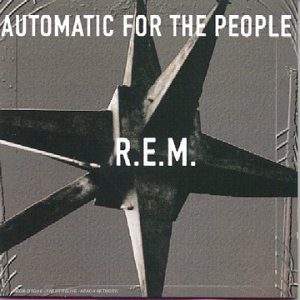 1. “Man on the Moon” (5:15)
1. “Man on the Moon” (5:15)
from Automatic for the People (1992; Warner Brothers)
In addition to paying off with the “album closer,” this sets up a lot of other things. It’s a song diehards love and even the unfamiliar know of and might even sing the chorus along to. Filtering a scattershot series of snapshots of human history through Mr. Andy Kaufman—from Hollywood—going down to Mamphus, Tenuhsee duurrr and riling up the faithful pro wrestling fans with the then-unspoken help of Jerry “the King” Lawler in the early eighties. Stipe shows off the band’s playful insouciance by connecting the *ahem* specious nature of pro graps to the possibility that the moon landing never happened while suggesting that humanity by its very nature sometimes needs to be tricked and needs to believe in something, as well; when he asks “Are you having fun?” right before a chorus it’s a borderline mission statement tucked in as a borderline throwaway line.
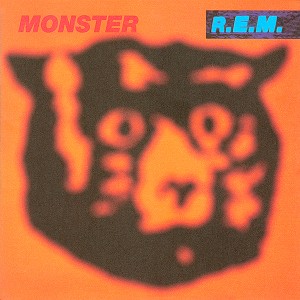 2. “What’s The Frequency, Kenneth?” (4:00)
2. “What’s The Frequency, Kenneth?” (4:00)
from Monster (1994; Warner Bros.)
So as they did in real life we repeat here, going from the softer and lusher tracks on Automatic to this monster off Monster featuring the band cranked up beyond haunting violas and pianos. It’s still astounding how neatly Stipe sums up the possibility of knowing someone’s mindset by studying their “cartoon, radio, music, TV, newsmagazine”; years later High Fidelity would mine this territory to the bottom of the cave in print as well as film. Yet it’s further underscored by using Linklater’s words of “withdrawl in disgust is not the same as apathy” in the next line, and thus not only cleverly aligning himself with the man behind Slacker but suggesting a way that these ’90s kids were all right, a bunch of former naive romantics turned practiced, jaded cynics. Within a couple of months of this single’s release, Newt Gingrich would ride into Washington on his Contract With America leading the midterm Republican Revolution, mugging the Clinton White House like a disoriented and beleaguered Dan Rather.
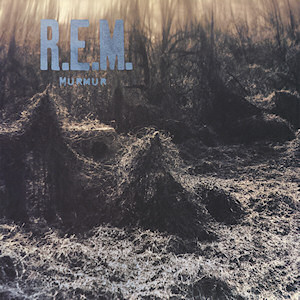 3. “Radio Free Europe” (3:49)
3. “Radio Free Europe” (3:49)
from Murmur (1983; I.R.S.)
Unless you’re Thom Yorke, you have to play the first song everybody found out about you from. In this case this is their first single off of their first album, where it holds the first spot, so, yes, it’s absolutely crucial to the narrative. Even in these nascent stages all the building blocks that start the juggernaut are here: ridiculously catchy chorus, singing about fighting apathy in troubled times, and the idea of challenging the then-far-more monolithic media-industrial complex. It’s all there even if you might have to look up the lyrics to make sure that it is.
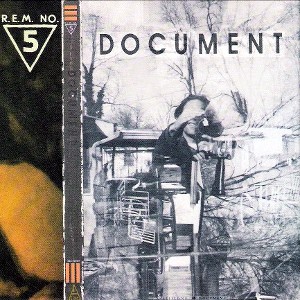 4. “It’s The End Of The World As We Know It (And I Feel Fine)” (4:07)
4. “It’s The End Of The World As We Know It (And I Feel Fine)” (4:07)
from Document (1987; I.R.S.)
Speaking of having to look up the lyrics, besides the now-famous LEONARD BERNSTEIN! towards the end and the title-belting chorus their own version of “Subterranean Homesick Blues” will lead to tripped tongues and triptychs of question marks. No matter: great as the band already was and would become you can stoutly make the case that they were never more in the pocket than this song showed off, and Mills’ backing vocals here are amongst the best he has on offer. Only Stipe could take a bizarre dream that sounds more like an unused Jeopardy! category (Famous L.B.s Through The Years) and use it to make lines that weave so deeply into a band’s legacy.
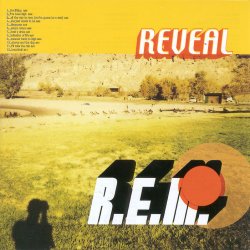 5. “Imitation Of Life” (3:57)
5. “Imitation Of Life” (3:57)
from Reveal (2001; Warner Bros.)
Better known for the movie that it’s named for or the pan and scan music video expanded out of a 20-second loop or the fact that this out of all their songs is the first no. 1 that they scored in Japan, this is almost always doomed to be desperately trying to get oxygen in a crowded room. But in the breakdown, it all gives way, as it should. You can’t tell if Stipe’s continuing admonishments to “come on” and “no one can see you/me cry” are lashing outwardly (the rest of the chorus and several other lines suggesting sweeter times with someone with some form of deep relationship) or self-flagellation (the title of the song, other lines suggesting he was once a young teen that was a tryhard trying too hard to look like he wasn’t trying too hard), and the storytelling supports either or is both. Not exactly a forgotten gem, but then again, it’s not like it’s…
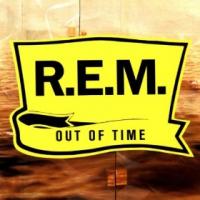 6. “Losing My Religion” (4:28)
6. “Losing My Religion” (4:28)
from Out of Time (1991; Warner Bros.)
…this, you know? Lost in the critically acclaimed as well as widely mocked music video that got them all the moon men while acting as an abridged and adapted-from-true-events Bible on a budget is the fact it took it to the song’s original inspiration and the phrase it was named after: being so flustered by a crush that you could drop the milk and the way they gradually and then perpetually take up real estate in your head can make you want to curse. The way little side glances and cosmic accidents can so easily rocket towards being so in absolute emotional tatters over the one you…want that you go through this bizarre bipolar paradigm where you DESPERATELY WANT THEM TO NOTICE YOU while simultaneously being afraid that THEY WILL IN FACT NOTICE YOU, and you’ll subsequently disappoint the one of your dreams. You’ve said too much. You haven’t said enough. And sometimes the Hint of the Century doesn’t even help. It feels like an open wound that’s continually being picked at and it’s a wonder any of us ever manage to breed sometimes.
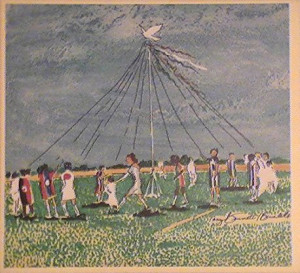 7. “One” (live with Adam Clayton & Larry Mullen Jr.) (4:18)
7. “One” (live with Adam Clayton & Larry Mullen Jr.) (4:18)
from Live X II: One Life (1995; 99x)
There’s an Earth-2 out there where these are the four guys who formed R.E.M. who’re steadily going on despite the backlash from iSurface users off of their last free album and U2 dissolves in 1989 after Peter Buck whales on Bono in the middle of a concert. That’s the thing about alternate universes; like our own, they’re awesome, bizarre, and horrifying. When arguably the two biggest bands in the world got their Murphy and Aykroyd on, the one-off semi-jokingly referred to Automatic Baby performed this for President Clinton at an MTV concert, which is possibly the most 1993 sentence of all-time. Removed from Bono’s messianic stage work while still beholden to Bono’s messianic lyrics (does he do other kinds?), this curio just revealed that “One”’s a really good song, one that makes the lyrics impact harder and cut deeper removed of outside glamour and taken down to their acoustic base. The aforementioned lovers of Mills’ background vocal work just might have their crown jewel in the closing moments of this one.
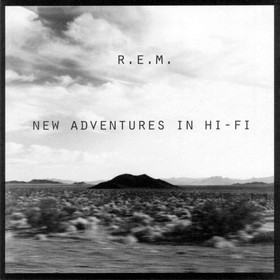 8. “E-Bow the Letter” (feat. Patti Smith) (5:26)
8. “E-Bow the Letter” (feat. Patti Smith) (5:26)
from New Adventures in Hi-Fi (1996; Warner Bros.)
Let’s continue and end the run of quality guests right here with one of the band’s influencers, the adept author, poet, songstress, and about 82 other adjectives for “wildly creative.” This one doesn’t rotate around Stipe’s weird dreamscape, though one is referred to; this is closer to a meditation about fame and possibly drugs, thus leading to widespread speculation that the letter in the title that’s turned out to be a mainstay at the Dead Letter Office was meant to be meted out to the likes of River Phoenix or maybe even St. Cobain himself. Either way, from the opening tuneup to the lengthy fadeout that never loses its intensity, it provides a grand, elegiac feel worthy of the memories of either man while still being undoubtedly something that feels like only R.E.M. could do.
 9. “Strange Currencies” (3:52)
9. “Strange Currencies” (3:52)
from Monster (1994; Warner Bros.)
What’s really striking about this—besides the tonal similarity to “Everybody Hurts,” yes— is how it calls echoes of the same sort of broken country/dream pop that was so pervasive on those pesky alternative rock stations like the Cowboy Junkies’ cover of “Sweet Jane” or the gorgeously lush “Fade Into You” by Mazzy Star. Stipe’s voice has never been the deepest baritone and he makes what he has work here in turning what would otherwise be platitudes to put on candy hearts into cajoles, hopes, and pleas to be better if he could just be loved.
 10. “Drive” (4:31)
10. “Drive” (4:31)
from Automatic for the People (1992; Warner Brothers)
One of their signature songs, Automatic’s opener does a fine job of showing off why rock and roll and youth culture are so deeply intertwined: since the beginning, it’s been about breaking free and finding your true self, whatever the hell that is and looks like. From the opening lines Stipe suggests the limitlessness that can be spawned by listening to the right thing at the right time while still cognizant of the constant evaporation of time, and he uses the genre’s history as a connective tissue with wry allusions to Buddy Holly as well as most obviously David Essex. And the depth of musicality layered in the mid-song breakdown is a strong, strong argument as to why everybody should own a good pair of over-the-ear headphones.
 11. “The One I Love” (3:18)
11. “The One I Love” (3:18)
from Document (1987; I.R.S.)
It’s not often seven words act like a Molotov cocktail, but by lobbing “a simple prop to occupy my time” after some trite and true cooings of devotion this song went from possible trifle to exploding on the charts in their breakout hit. If you were too lost trying to decipher Mills’ supporting vocals or busy making out to get the hint, the video starts with flashes of lightning that by the end are reduced to a candle that Stipe blows out, effectively putting that relationship to bed. And yet people will continue to canoodle to this. You might as well have had “Every Breath You Take” as your first dance at your wedding!
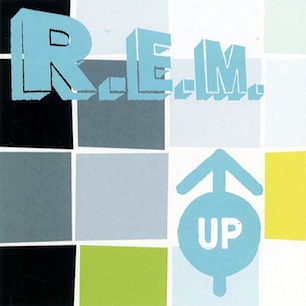 12. “At My Most Beautiful” (3:37)
12. “At My Most Beautiful” (3:37)
from Up (1998; Warner Brothers)
If you want to make out to something on this list with the hopes of the relationship lasting, you should start (and possibly end) here. In part inspired by a conversation with the aforementioned Smith, this Beach-Boys-styled song is probably the closest analogue the band has to “God Only Knows” and it’s about as gorgeous too. The photo negative of the previous song here, Stipe is actually singing about the one he loves genuinely, recalling little moments that are obviously the big ones over a bed mostly consisting piano, a series of tubular and sleigh bells with a little harmonica thrown in before the closing cellos. When people aren’t good at recapitulating their influences through their own lens, we call it a ripoff. When they are, we call it homage. This platonic valentine to Brian Wilson, et al. is clearly the latter.
 13. “Nightswimming” (4:18)
13. “Nightswimming” (4:18)
from Automatic for the People (1992; Warner Brothers)
But beautiful piano work and R.E.M. were far from a single-serving friendship around the turn of the century. Here Stipe calls to mind some childhood memories of summer evenings, and he brings you right there with him evoking the ride to get down to the lake, the closeness of the moon dappling off of the water, and so much more. Closing your eyes for the movie in your mind you can see the small knot of teenagers splashing slightly past the edge where the land ends, small puddles of clothes there to mark the point where they wade in nude and unafraid opposed to how they were years ago. This isn’t the best piano coda that the actual piano used ever put out—it was apparently also the generator of the fine closing minutes of “Layla”— but this song takes second place to nothing in R.E.M.’s catalog, well-made and extensive as it is.
 14. Tongue (4:13)
14. Tongue (4:13)
from Monster (1994; Warner Bros.)
Singing in falsetto and backed by an organ that seems like it would be more at home within the confines of a church or a stadium, Stipe’s downtrodden cadence tells a sad short story: a woman who feels like she’s ugly, stuck in an abusive relationship and using misgivings about household items and disorganization as her only conduit to express what she should be actually doing in running nothing to 90 in the opposite direction from this life. It’s “Strange Currencies” with a sweater on in the middle of the summer looking down so you can’t see the black around the eye, and when the coda concludes here it sounds like a surrender without a shot being fired and is all the more haunted and haunting for being so. Of course, even with its beauty “Tongue” is far too dour a song to end this compilation on.
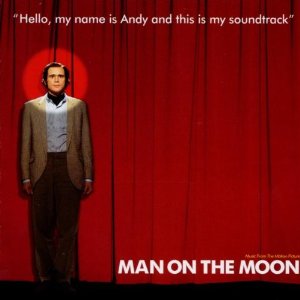 15. “The Great Beyond” (5:07)
15. “The Great Beyond” (5:07)
from the Man on the Moon soundtrack (2000; Warner Bros.)
A la Chekov’s Gun, call this a Kaufman Corollary as we take it back from hence we began: playful promises of honesty that guarantee trickery, the possibility one can always find someone else and go off into the stratosphere since it’s where you’re looking at when you’re looking to the stars and to the moon; the ineffable feeling that the little ghosts for the offering have somehow unlocked the secret of the universe and paid with their lives to get it. Doing the physically improbable and dodging cartoon attacks? Any Intergender Champion worth their belt can do that. It’s trying to find the answers of Earth while you’re still here that can kill you.
You might also like:



Butch Rosser is a frequent writer, part-time DJ and full-time audiophile. In addition to his Treble contributions, he is currently at work on his first novel, The One Man Jihad. He lives with his fiancee and her cat.


“one for each studio album that got released”
Really?
Reckoning? Chronic Town? Fables of the Reconstruction? Life’s Rich Pageant? Dead Letter Office?
You need an editor my man. This was neither fun nor easy to read. Which is a damn shame considering the subject matter.